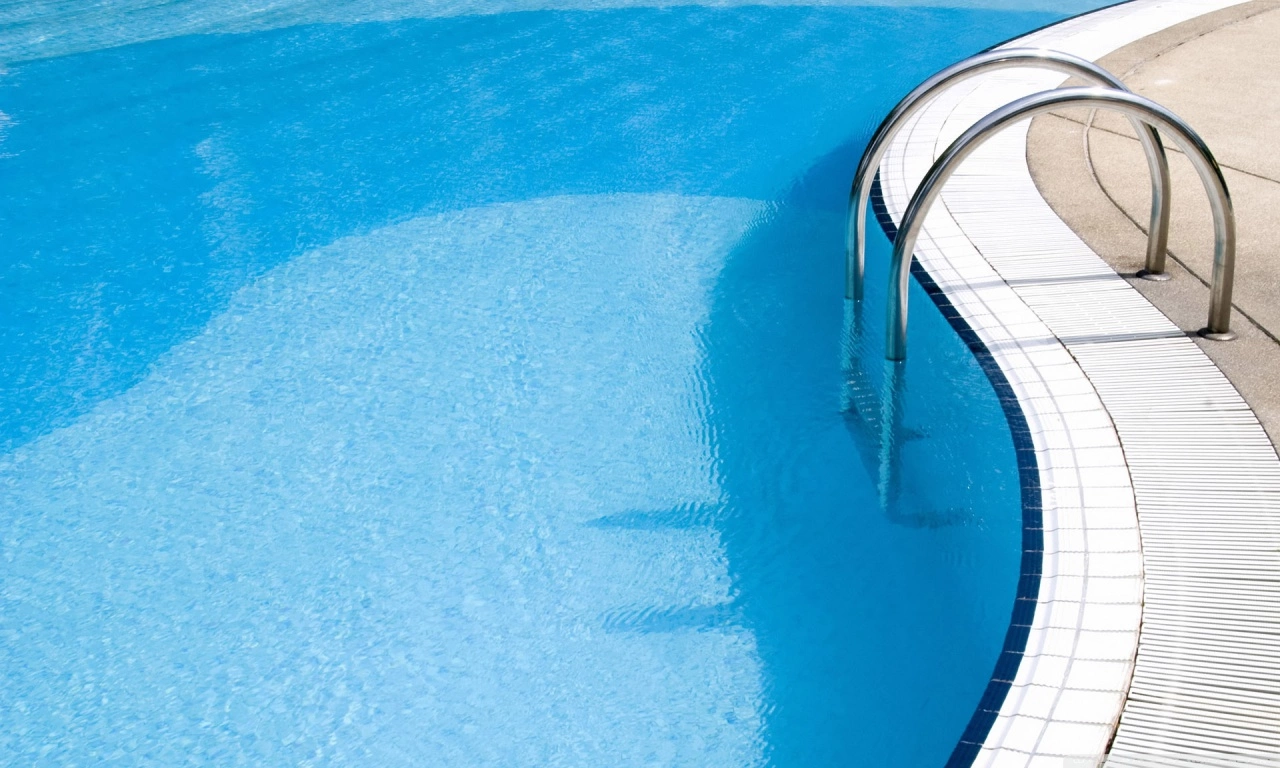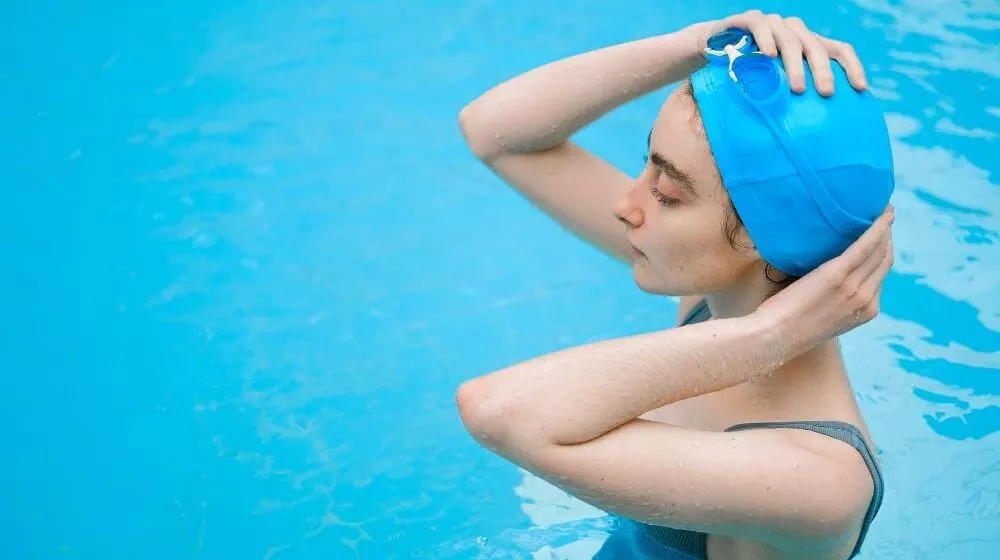Skin & Hair Care Tips for Swimmers
The water in the swimming pool is not as clean as the naked eye views. There are microorganisms like bacteria and fungi and the sweat, scurf and other substances of the human body. And we usually clean the pool water with disinfection which refers to the chlorides with strong oxidization that can kill microorganisms and algae, and sterilize the swimming pool. What's more, to keep the water clean and blue, we add copper sulfate to complete the disinfection. However, these substances will inevitably do great harm to our body, especially to the skin and hair.
The first is irritation to the skin. Some symptoms, like red and itchy skin which are similar to an allergy, will occur on the swimmer's body and become worse on sensitive people's skin. If you feel itchy after swimming, it may be due to the hypochlorous acid. As a product of the contact of chlorine and water, it is able to strip the natural oil of the skin, destroy the skin protection barrier and make the skin dry, red and even itchy. Furthermore, chlorides can damage the pigments and the structure of hair scales so that our hairs will become withered and yellow. So it's best not to swim in the swimming pool when you just dye your hair.

Then, what should you do to protect your body from chlorine damage?
Before Swimming
1. Choose a clean and hygienic swimming place.
The water quality and hygiene condition of qualified swimming pools are much better than that of neglected and wild places. The sanitary license and certificate will be hung on the wall of the entrance or in other eye-catching positions. Pay attention to the color of the pool water which should be clear and bright blue. The smell can also help to tell the quality of water. If there is an extremely pungent smell or unpleasant odors, it may manifest that the disinfectant has been used excessively or just now, or the disinfection is not completed well.
2. Take heed of moisturizing and sun protection.
Moisturizers can play a protective role. You had better choose the product with the excellent water-resisting function that is gentle and can keep your skin moisturized and take good care of your sensitive body. If you swim under strong sunlight or outdoors, you must protect yourself from the sun. Give preference to the sunscreen with stable physical ingredients which is waterproof and swear-resistant and has a good SPF. But it should be noted that you can enter the swimming pool until the sunscreen film is completely formed to avoid polluting the water.
3. Wear swimming equipment.
Swimwear, swim cap and goggles are essential swimming equipment. It is recommended to give priority to the swimsuit with large coverage to reduce the hurt skin receives on the physical level. Wearing a swim cap is a very safe and effective hair care method. It's best to choose one made of silicone materials that have excellent air permeability and water resistance.

After Swimming
1. Clean your skin carefully.
After swimming, germs can easily remain on the skin, so it is necessary to clean the skin well. First, select the shower gel with nourishing ingredients and the body lotion with a high moisturizing effect. Second, be sure to wash your hair carefully, and use the hair conditioner for extra protection. Third, clean your mouth in time before eating, or you would bring germs into the gastrointestinal tract. And last, it's fine to use chloramphenicol eye drops to prevent eye infection.
2. Wash your swimwear.
The residual chlorine in the swimsuit will not only shorten the service life of the swimwear, but also affect your skin the next time you use it. Therefore, you can rinse the swimwear directly with water after swimming, and gently wash it by hand with common laundry soap instead of other detergents when you get home. Do not wring it out, otherwise it would lose its elasticity. After washing, it's all right to spread it on a towel and softly squeeze water out.
The first is irritation to the skin. Some symptoms, like red and itchy skin which are similar to an allergy, will occur on the swimmer's body and become worse on sensitive people's skin. If you feel itchy after swimming, it may be due to the hypochlorous acid. As a product of the contact of chlorine and water, it is able to strip the natural oil of the skin, destroy the skin protection barrier and make the skin dry, red and even itchy. Furthermore, chlorides can damage the pigments and the structure of hair scales so that our hairs will become withered and yellow. So it's best not to swim in the swimming pool when you just dye your hair.

Then, what should you do to protect your body from chlorine damage?
Before Swimming
1. Choose a clean and hygienic swimming place.
The water quality and hygiene condition of qualified swimming pools are much better than that of neglected and wild places. The sanitary license and certificate will be hung on the wall of the entrance or in other eye-catching positions. Pay attention to the color of the pool water which should be clear and bright blue. The smell can also help to tell the quality of water. If there is an extremely pungent smell or unpleasant odors, it may manifest that the disinfectant has been used excessively or just now, or the disinfection is not completed well.
2. Take heed of moisturizing and sun protection.
Moisturizers can play a protective role. You had better choose the product with the excellent water-resisting function that is gentle and can keep your skin moisturized and take good care of your sensitive body. If you swim under strong sunlight or outdoors, you must protect yourself from the sun. Give preference to the sunscreen with stable physical ingredients which is waterproof and swear-resistant and has a good SPF. But it should be noted that you can enter the swimming pool until the sunscreen film is completely formed to avoid polluting the water.
3. Wear swimming equipment.
Swimwear, swim cap and goggles are essential swimming equipment. It is recommended to give priority to the swimsuit with large coverage to reduce the hurt skin receives on the physical level. Wearing a swim cap is a very safe and effective hair care method. It's best to choose one made of silicone materials that have excellent air permeability and water resistance.

After Swimming
1. Clean your skin carefully.
After swimming, germs can easily remain on the skin, so it is necessary to clean the skin well. First, select the shower gel with nourishing ingredients and the body lotion with a high moisturizing effect. Second, be sure to wash your hair carefully, and use the hair conditioner for extra protection. Third, clean your mouth in time before eating, or you would bring germs into the gastrointestinal tract. And last, it's fine to use chloramphenicol eye drops to prevent eye infection.
2. Wash your swimwear.
The residual chlorine in the swimsuit will not only shorten the service life of the swimwear, but also affect your skin the next time you use it. Therefore, you can rinse the swimwear directly with water after swimming, and gently wash it by hand with common laundry soap instead of other detergents when you get home. Do not wring it out, otherwise it would lose its elasticity. After washing, it's all right to spread it on a towel and softly squeeze water out.